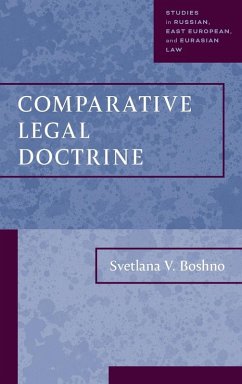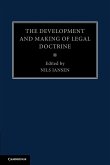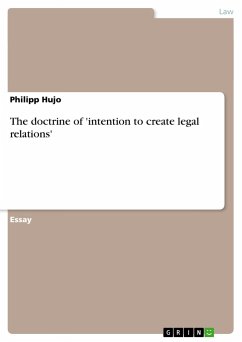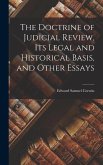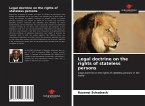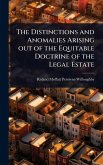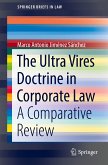This pioneering work is the first in English to examine the role of legal doctrine in the American and, primarily, Russian legal systems. Much as judicial precedent has been used in the past, Boshno's study considers the use (or non-use) of legal doctrine as a distinguishing feature between families of legal systems. Taking advantage of access to judicial materials facilitated by modern technologies, it identifies instances where reliance on doctrinal sources is explicit. Then, it considers these issues through the lens of detailed questionnaires and lengthy personal conversations made with exceptional access to actors in the Russian legal system. The major achievement of this study is its demonstration that the use of legal doctrine in judicial processes is a major distinguishing feature between Anglo-American and socialist/transitional/Romano-Germanic legal models. It is a significant benchmark in comparative legal studies-an empirically documented, original and pathbreaking socio-legal study of a legal system in which studies on this scale are unprecedented.Svetlana V. Boshno is the first Russian jurist to hold higher doctorates (¿¿¿¿¿¿ ¿¿¿¿¿¿¿¿¿¿¿ ¿¿¿¿ (2004) and SJD (2024)) in the Russian Federation and the United States. She has taught law for more than three decades and consulted extensively in various capacities on legislative drafting. She has written extensively on sources of law, applying her multi-disciplinary background in sociology, philology, statistics, mathematics, artificial intelligence, computer programming and public administration to produce a model for legal research in the form of the "Persona-Doctrine," an original concept elaborated with scientific rigor andpersonal warmth. xxviii, 460 pp.
Bitte wählen Sie Ihr Anliegen aus.
Rechnungen
Retourenschein anfordern
Bestellstatus
Storno

